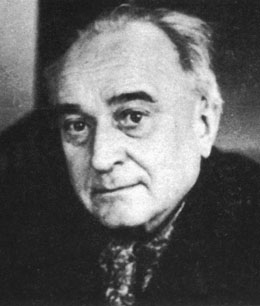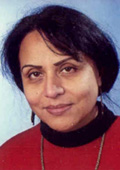Related Research Articles

Anthropology is the scientific study of humanity, concerned with human behavior, human biology, cultures, societies, and linguistics, in both the present and past, including past human species. Social anthropology studies patterns of behavior, while cultural anthropology studies cultural meaning, including norms and values. A portmanteau term sociocultural anthropology is commonly used today. Linguistic anthropology studies how language influences social life. Biological or physical anthropology studies the biological development of humans.

Bronisław Kasper Malinowski was a Polish-British anthropologist and ethnologist whose writings on ethnography, social theory, and field research have exerted a lasting influence on the discipline of anthropology.

Sir Edward Evan Evans-Pritchard FBA FRAI was an English anthropologist who was instrumental in the development of social anthropology. He was Professor of Social Anthropology at the University of Oxford from 1946 to 1970.

Charles Gabriel Seligman FRS FRAI was a British physician and ethnologist. His main ethnographic work described the culture of the Vedda people of Sri Lanka and the Shilluk people of the Sudan. He was a professor at London School of Economics and was highly influential as the teacher of such notable anthropologists as Bronisław Malinowski, E. E. Evans-Pritchard and Meyer Fortes all of whose work overshadowed his own.
The Gumuz are an ethnic group speaking a Nilo-Saharan language inhabiting the Benishangul-Gumuz Region and the Qwara woreda in western Ethiopia, as well as the Fazogli region in Sudan. They speak the Gumuz language, which belongs to the Nilo-Saharan family. The Gumuz number around 200,000 individuals.

The Toposa are an ethnic group in South Sudan, living in the Greater Kapoeta region of the erstwhile Eastern Equatoria state. They have traditionally lived by herding cattle, sheep and goats, and in the past were involved in the ivory trade. They have a tradition of constant low-level warfare, usually cattle raids, against their neighbors.

Dan Sperber is a French social and cognitive scientist and philosopher. His most influential work has been in the fields of cognitive anthropology, linguistic pragmatics, psychology of reasoning, and philosophy of the social sciences. He has developed: an approach to cultural evolution known as the epidemiology of representations or cultural attraction theory as part of a naturalistic reconceptualization of the social; relevance theory; the argumentative theory of reasoning. Sperber formerly Directeur de Recherche at the Centre National de la Recherche Scientifique is Professor in the Departments of Cognitive Science and of Philosophy at the Central European University in Budapest.

Craig Jackson Calhoun is an American sociologist, currently University Professor of Social Sciences at Arizona State University. An advocate of using social science to address issues of public concern, he was the Director of the London School of Economics and Political Science from September 2012 until September 2016, after which he became the first president of the Berggruen Institute. Prior to leading LSE, Calhoun led the Social Science Research Council, and was University Professor of the Social Sciences at New York University and Director of NYU's Institute for Public Knowledge. With Richard Sennett he co-founded NYLON, an interdisciplinary working seminar for graduate students in New York and London who bring ethnographic and historical research to bear on politics, culture, and society.
Georgina Emma Mary Born, is a British academic, anthropologist, musicologist and musician. As a musician she is known as Georgie Born and for her work in Henry Cow and with Lindsay Cooper.
The Uduk are a Nilo-Saharan group from eastern Sudan. They call themselves Kwanim Pa and are culturally and linguistically related to neighboring communities, such as the Gumuz and the Kwama from the Sudan-Ethiopia borderland. Due to the recent war in southern Sudan they have been forced to emigrate to other countries, especially Ethiopia. Following the peace agreement in 2005, some Uduk have started to return home.
Douglas Hamilton Johnson is an American scholar who lives in Britain who specializes in the history of North East Africa, Sudan and the Southern Sudan.
Ronald Godfrey Lienhardt was a British anthropologist. He took many photographs of the Dinka people he studied. He wrote about their religion in Divinity and Experience: the Religion of the Dinka.
This bibliography of anthropology lists some notable publications in the field of anthropology, including its various subfields. It is not comprehensive and continues to be developed. It also includes a number of works that are not by anthropologists but are relevant to the field, such as literary theory, sociology, psychology, and philosophical anthropology.
Rosalind Louisa Beaufort Moss, FSA was a British Egyptologist and bibliographer, noted for her work on The Topographical Bibliography of Ancient Egyptian Hieroglyphic Texts, Reliefs and Paintings.
Audrey Joan Butt Colson, is a social anthropologist with a particular interest in the Amerindian peoples of Guyana, Brazil and Venezuela. She was, together with Peter Rivière, one of the pioneers of Amazonian anthropology at the University of Oxford.
Ruth Mace FBA is a British anthropologist, biologist, and academic. She specialises in the evolutionary ecology of human demography and life history, and phylogenetic approaches to culture and language evolution. Since 2004, she has been Professor of Evolutionary Anthropology at University College London.
Ann Patricia Bailey "Pat" Caplan, is a retired British anthropologist and academic. From 1989 to 2003, she was Professor of Social Anthropology at Goldsmiths College, University of London. She was also the Director of the Institute of Commonwealth Studies between 1998 and 2000.

Janet Carsten is an anthropologist and professor currently employed at the University of Edinburgh. Carsten studies social and cultural anthropology. She is the daughter of the British historian Francis Ludwig Carsten.
Cultural archive is a term associated with social anthropologist Wendy James referencing the repository of knowledge found in everyday interactions that individuals reference to validate their existence in the world. This term was coined during James' research of the Uduk people of Sudan in the 1990's.

Aparna Rao was a German anthropologist who performed studies on social groups in Afghanistan, France, and some regions of India. Her doctorate studies focused on anthropogeography, ethnology, and Islamic studies. Rao taught anthropology at the University of Cologne, serving for a brief time as chair of the Department of Ethnology at the South Asia Institute of Heidelberg University, Germany.
References
- 1 2 3 4 5 6 7 8 9 10 "JAMES, Prof. Wendy Rosalind, (Mrs D. H. Johnson)". Who's Who 2017. Oxford University Press. November 2016. Retrieved 4 February 2017.(subscription may be required or content may be available in libraries)
- 1 2 3 4 5 "Professor Wendy Rosalind James". St Cross College. Retrieved 4 February 2017.
- 1 2 "Wendy James, CBE". Oxford Today. University of Oxford. 1 January 2010. Retrieved 4 February 2017.
- ↑ James, Wendy (1970). Principles of social organisation among the Uduk speaking people of the southern Fung region, Republic of the Sudan. E-Thesis Online Service (Ph.D). The British Library Board. Retrieved 4 February 2017.
- 1 2 3 4 5 6 "Professor Wendy James". British Academy. Retrieved 4 February 2017.
- ↑ "Recognition of Distinction". Oxford University Gazette. 4408 (Supplement 2). 22 July 1996.
- ↑ "Amaury Talbot Prize for African Anthropology Past Recipients". The RAI. Royal Anthropological Institute. Retrieved 4 February 2017.
- ↑ "Rivers Memorial Medal Prior Recipients". The RAI. Royal Anthropological Institute. Retrieved 4 February 2017.
- ↑ "No. 59808". The London Gazette (Supplement). 11 June 2011. pp. 7–8.